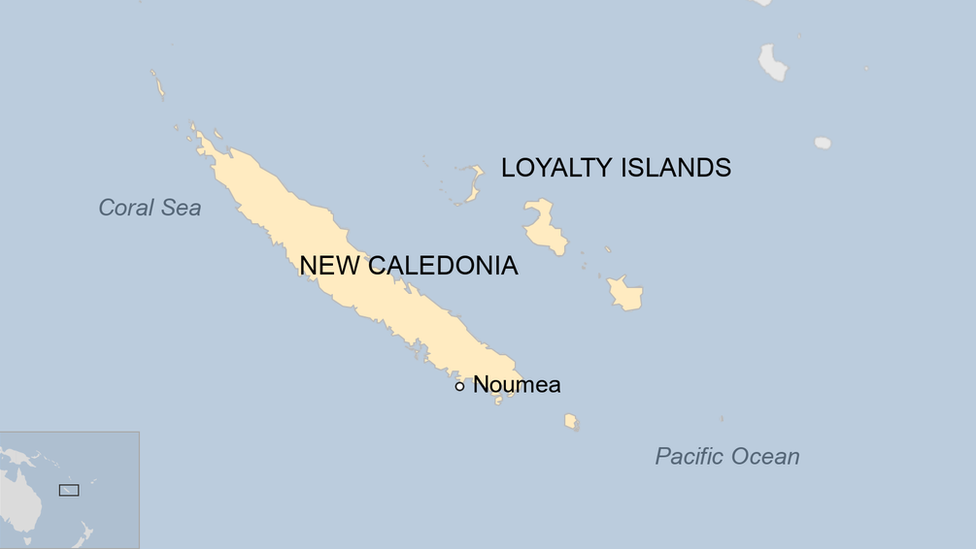Vanuatu country profile
- Published
This page is no longer being updated. It was last updated on 27 October 2023

Vanuatu, a string of more than 80 islands once known as the New Hebrides, achieved independence from France and Britain in 1980.
Most of the islands are inhabited; some have active volcanoes.
Vanuatu is mountainous and much of it is covered with tropical rainforests. Like most of the area, it is prone to earthquakes and tidal waves. In 2015 it was hit by Cyclone Pam which caused widespread damage.
Most of the people live in rural areas and practise subsistence agriculture.
Local traditions are strong. Women, for example, generally have lower social standing than men and have fewer educational opportunities.
Since the 1990s, Vanuatuan politics have been unstable with a series of fractious coalition governments and the use of no confidence votes resulting in frequent changes of prime ministers.
Read more country profiles, external - Profiles by BBC Monitoring, external
REPUBLIC OF VANUATU: FACTS
Capital: Port Vila
Area: 12,189 sq km
Population: 307,800
Languages: Bislama, English, French
Life expectancy: 68 years (men) 72 years (women)
LEADERS
President: Nikenike Vurobaravu
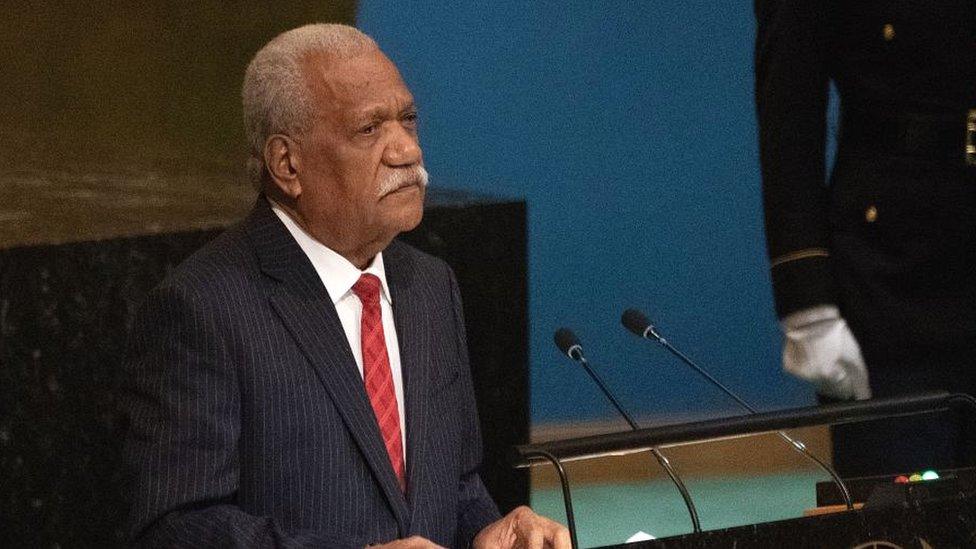
Nikenike Vurobaravu was elected president in July 2022. He succeeded Tallis Obed Moses.
He is a career diplomat and politician who has served in numerous diplomatic and government positions, including as the Vanuatu's first resident high commissioner to Fiji.
The presidency is considered to be a mainly ceremonial post.
Prime Minister: Ishmael Kalsakau
Ishmael Kalsakau was appointed prime minister in November 2022 following a general elections in October 2022 after a no-confidence vote against the then-prime minister Bob Loughman.
MEDIA
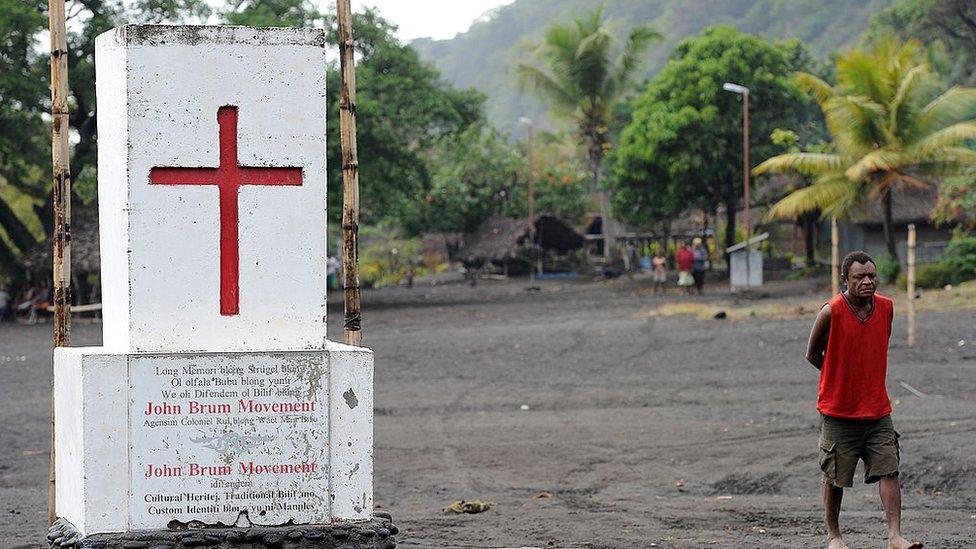
Vanuatu is home to one of the world's most accessible volcanoes, and to the John Frum or Brum cargo cult
The single TV channel on Vanuatu was established with the help of Radio France Overseas (RFO) and broadcasts in French and English.
TIMELINE
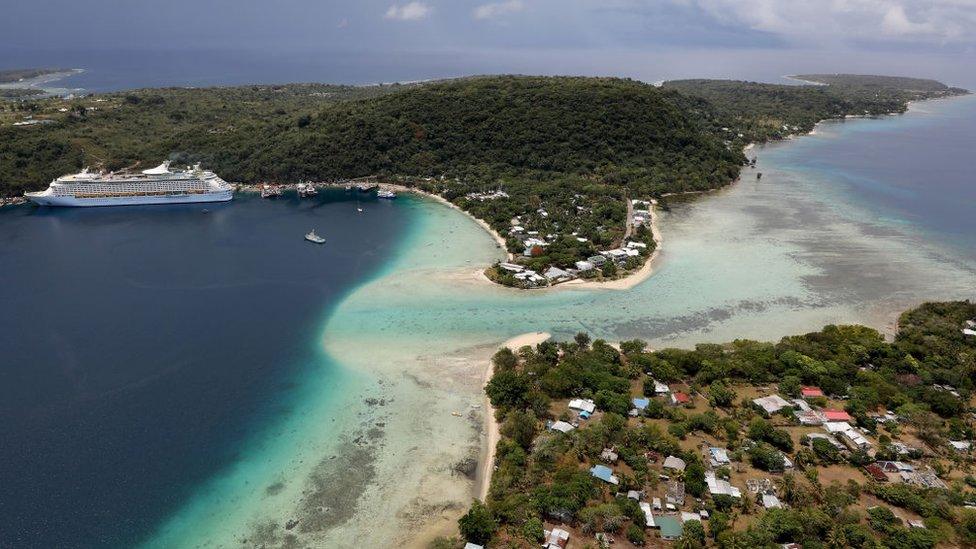
An aerial view of Vanuatu's capital, Port Vila
Some key events in Vanuatu's history:
550BC - First inhabited by Melanesian people.
1606 - Explorer Pedro Fernandez de Quiros leads an expedition to the islands naming them Terra Austrialis del Espiritu Santo.
1768 - Louis Antoine de Bougainville names the islands Les Grandes Cyclades.
1774 - British explorer Captain Cook charts the islands calling them the New Hebrides.
1800s - Thousands of ni-Vanuatu are kidnapped and forced to work on sugar and cotton plantations in Fiji and Queensland, Australia. The practice, known as "blackbirding", continues until the early 20th Century.
1906 - Britain and France make the country a condominium, under joint Anglo-French administration.
1938 - Emergence of the John Frum (also John Brum or Prum) cargo cult. Believers say goods owned by American and European visitors to the island are really meant for them but are intercepted by the foreigners. They believe that their ancestors will one day return with "cargo" for them. The British outlaw any mention of John Frum.
1956 - John Frum is recognised as a religion by the Anglo-French Condominium.
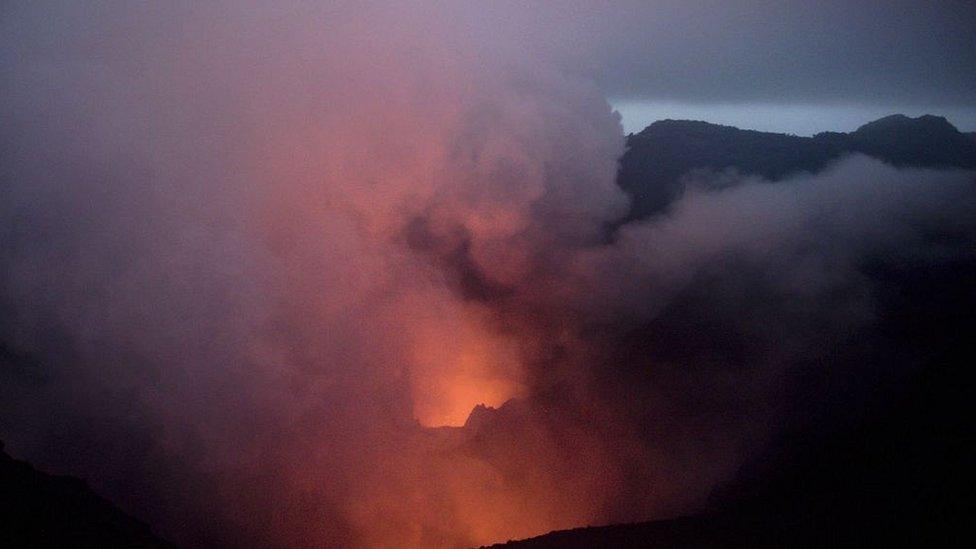
The active volcano of Mount Yasur is a major tourist attraction in Vanuatu
1963 - The NaGriamel political movement emerges on Espiritu Santo. Followers advocate the return of land to the ni-Vanuatu people and a return to traditional ways.
1971 - NaGriamel, anxious that more than 36% of the New Hebrides is now owned by foreign missionaries, planters and traders, petitions the UN to prevent further land sales to non-indigenous people
1977 - Representatives of the New Hebrides and the governments of Britain and France agree an independence plan for the islands in 1980 following a referendum and elections.
1978 - A measure of self-government introduced.
1980 - Jimmy Stevens, the leader of NaGriamel, declares Espiritu Santo independent of the rest of the New Hebrides renaming it the Independent State of Vemarana. Papua New Guinea troops put down the insurrection.
1980 - New Hebrides attains independence within the Commonwealth
2003 - In response to reforms, the OECD removes Vanuatu from a list of uncooperative tax havens.
2004 - Prime Minister Vohor is ousted in a vote of no confidence after an attempt to forge diplomatic relations with Taiwan.
2005 - Thousands are evacuated as Mount Manaro, an active volcano on Ambae, erupts.
2012 - Diplomatic row with Australia over the arrest of Prime Minister Kilman's secretary on fraud charges. Vanuatu expels an Australian police liaison group in response.
2015 - Cyclone Pam causes widespread devastation. President Lonsdale says climate change is a key factor.
2017 - The prime ministers of Vanuatu, Tuvalu and the Solomon Islands raise human rights concerns over West Papua, which has been part of Indonesia since 1963. It is estimated some 100,000 Papuans may have died in the fighting between separatists and Indonesian forces. Indonesia rejects the allegations.
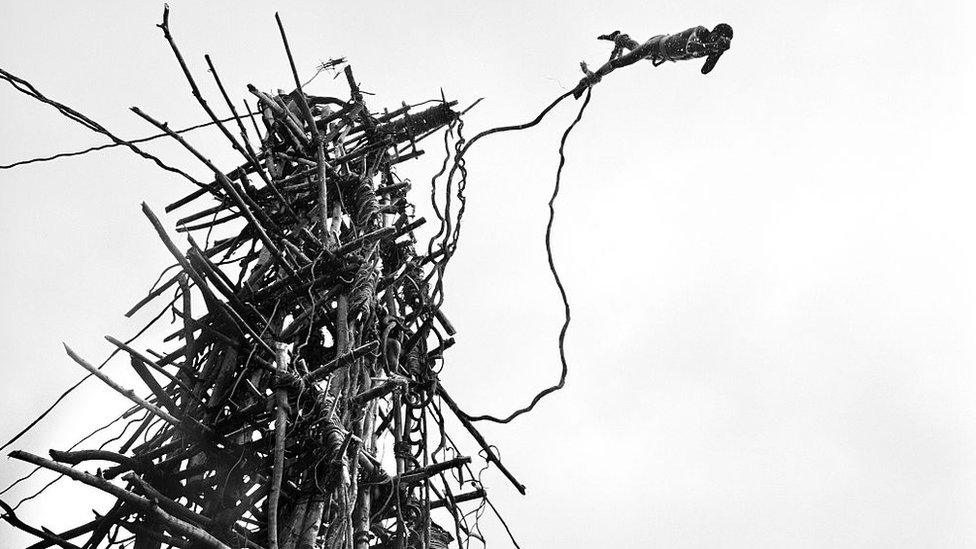
Land diving, a precursor to bungee jumping, is still practised on Vanuatu's Pentecost Island
Related topics
- Published14 April 2023
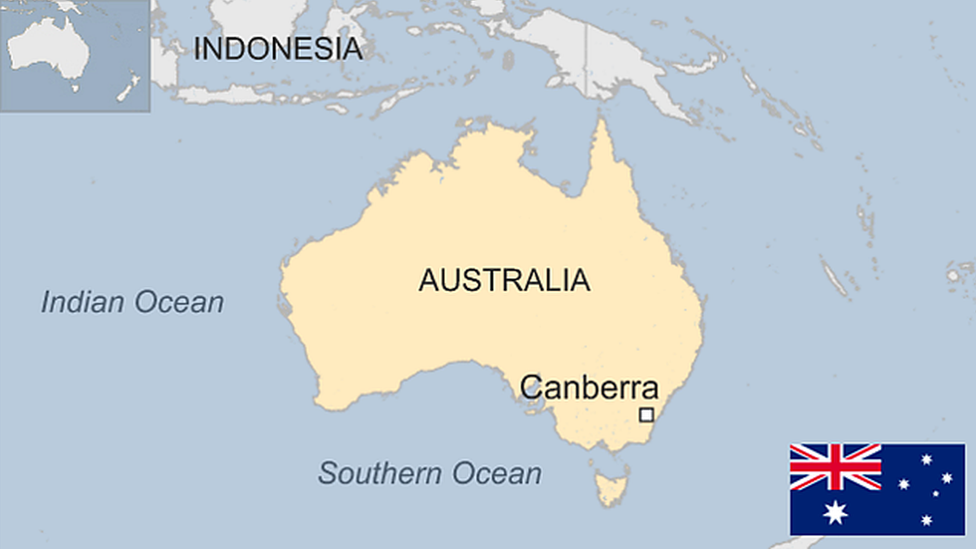
- Published19 December 2023
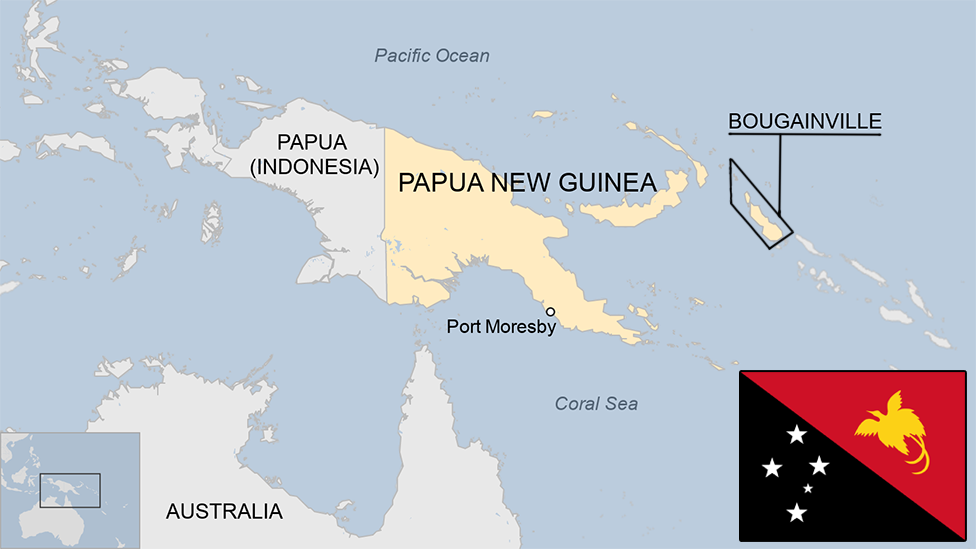
- Published21 May 2024
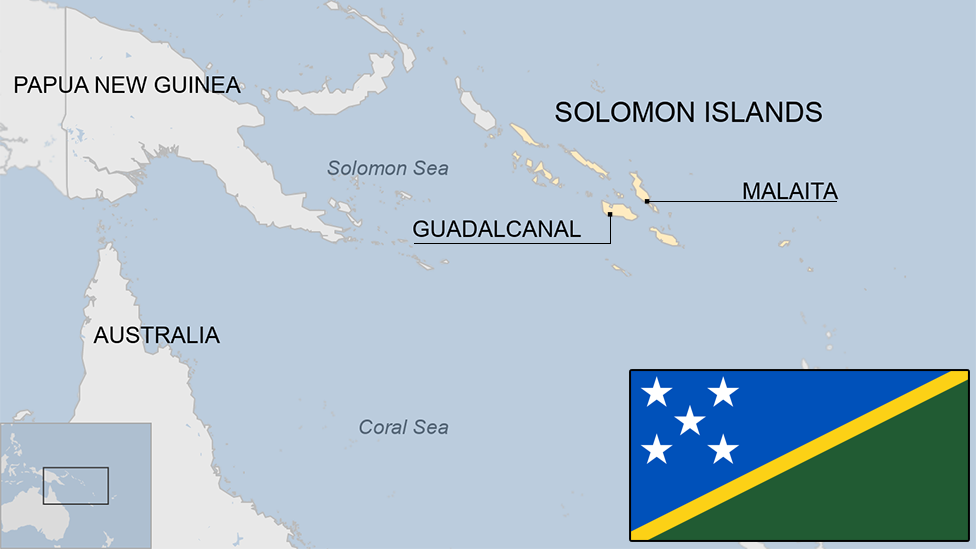
- Published23 August 2023
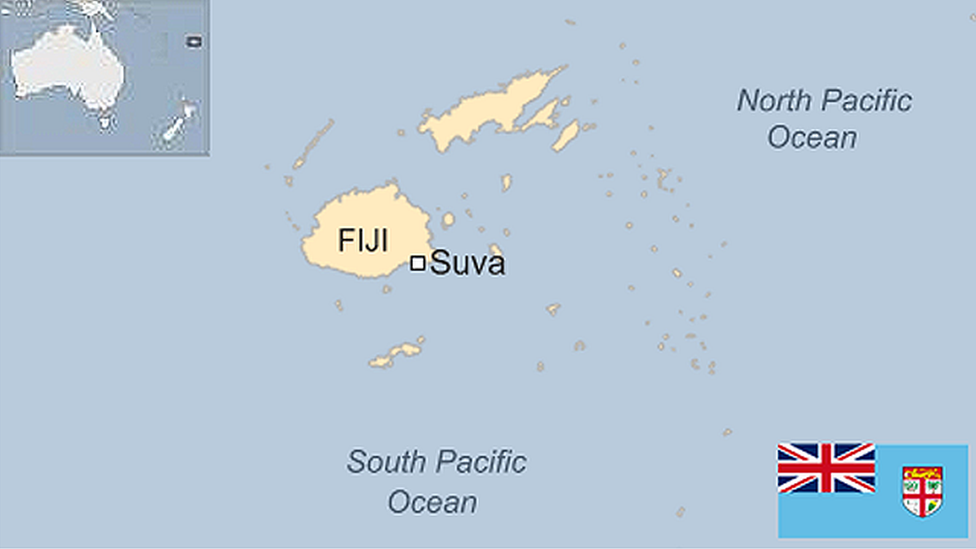
- Published24 May 2024
